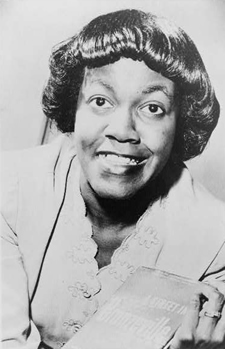the mother
Listen to the Poem in English
the mother – Read by Gabriela Jatene
Gwendolyn Brooks – Original Text (1945)
Abortions will not let you forget.
You remember the children you got that you did not get,
The damp small pulps with a little or with no hair,
The singers and workers that never handled the air.
You will never neglect or beat
Them, or silence or buy with a sweet.
You will never wind up the sucking-thumb
Or scuttle off ghosts that come.
You will never leave them, controlling your luscious sigh,
Return for a snack of them, with gobbling mother-eye.
I have heard in the voices of the wind the voices of my dim killed children.
I have contracted. I have eased
My dim dears at the breasts they could never suck.
I have said, Sweets, if I sinned, if I seized
Your luck
And your lives from your unfinished reach,
If I stole your births and your names,
Your straight baby tears and your games,
Your stilted or lovely loves, your tumults, your marriages, aches, and your deaths,
If I poisoned the beginnings of your breaths,
Believe that even in my deliberateness I was not deliberate.
Though why should I whine,
Whine that the crime was other than mine?—
Since anyhow you are dead.
Or rather, or instead,
You were never made.
But that too, I am afraid,
Is faulty: oh, what shall I say, how is the truth to be said?
You were born, you had body, you died.
It is just that you never giggled or planned or cried.
Believe me, I loved you all.
Believe me, I knew you, though faintly, and I loved, I loved you
All.
Author Notes

Gwendolyn Brooks was born on June 7, 1917, in Topeka, Kansas. Her family moved to Chicago when she was 6 years old, and she lived there until her death on December 3, 2000. Brooks began writing at an early age, and published her first poem in a children’s magazine at age 13. By 16, she had published approximately 75 poems. Brooks is one of the most highly regarded, influential, and widely read poets of 20th-century American poetry, and was the first Black author to win the Pulitzer Prize. She was also the first black woman to serve as poetry consultant to the Library of Congress, and poet laureate of the State of Illinois. Brooks’ work discusses themes of racial equality and womanhood and are, to this day, some of the most significant pieces of intersectional Feminist writing.
Sources
“Gwendolyn Brooks.” Biography.com, A&E Networks Television, 24 Aug. 2020, https://www.biography.com/writer/gwendolyn-brooks.
“Gwendolyn Brooks.” Poetry Foundation, Poetry Foundation, https://www.poetryfoundation.org/poets/gwendolyn-brooks.
